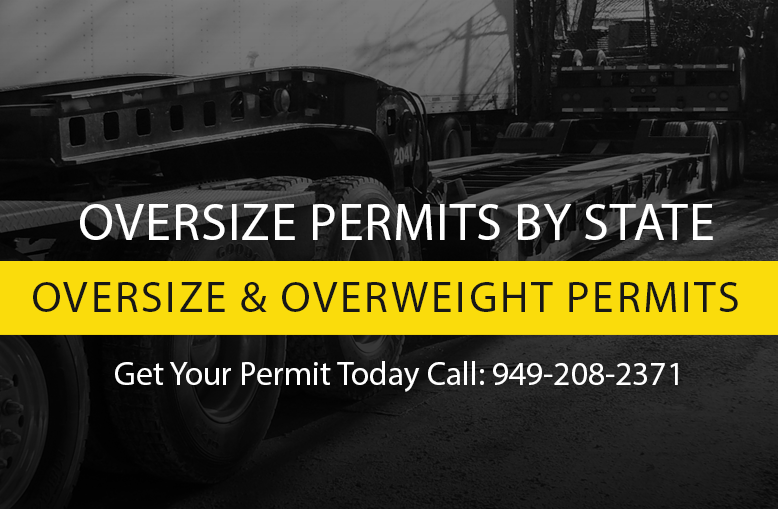Getting the necessary permissions and having an in-depth understanding of the rules that regulate the transportation of large cargoes in Florida are both necessary steps to take in order to ensure a smooth travel. The Florida Department of Transportation (FDOT) provides full regulations for oversize and overweight permits, which are essential for companies who are involved in heavy haul transportation. Note Trucking, which is well-known for its expertise in this field, creates an in-depth manual that explains how to navigate the restrictions that govern oversize permits in the state of Florida.
Different kinds of permits and the application procedure
Several different types of permits are available in Florida to meet a wide range of transportation requirements:
Annual Blanket Permits are designed specifically for those who move often and allow for an unlimited number of journeys a year. It doesn’t matter whether it’s a construction business that transports heavy gear on a regular basis or a logistics company that deals with huge transport; the yearly blanket permit offers the necessary flexibility and convenience that is required for operations to continue without interruptions.
Blanket permits that are unique to a vehicle are something that are comparable to yearly permits but are intended for a particular vehicle. The application procedure is simplified with this form of permit, which guarantees compliance for each and every journey. This type of permit is especially beneficial for companies who operate a fleet of vehicles with varied dimensions.
Ten-Day Trip Permits are suitable for traveling on a single trip and require the applicant to provide an arranged route. In addition to providing a temporary solution that does not need to take on of an annual permit, it is designed to manage one-time deliveries or not common transportation.
Blanket permits that are specific to routes for a period of three months are designed for companies who have routes that are constant during that period of time. This particular permit version is perfect for businesses that engage in regular transportation routes since it minimizes the amount of administrative headache and ensures compliance for long periods of time.
Self-issuance of trip permits is made possible via the Florida Department of Transportation’s (FDOT) Permit Application System (PAS) for loads that are up to
16 feet wide,
18 feet high,
150 feet long, and 200,000 pounds.
Businesses are able to save an important amount of time and money by using this removed approach, which makes it possible for them to get permits in an effective manner without having to engage directly with the Permit Office.
Travel Restrictions and Operating Hours of the Business
For the most part, the periods that are allowed for travel correspond with daylight hours; however, there are few exceptions that allow for continuous movement. It is of most significance to take notice that during peak hours, some roadways may be subject to traffic limitations, especially within the major regions of Phoenix and Tucson. By being familiar with these constraints and thoroughly arranging the route, one may assure compliance and reduce the amount of time that transportation delays happen.
The Legal Issues and Legal Responsibility of Escorts
In the lack of a permission, the legal dimensions of Florida include not only:
The height is 13’6″ and the width is 8’6″.
Length: forty feet for a single vehicle or sixty-five feet for a combination of vehicles
Eighty thousand pounds (gross) in weight
A permit is required for loads that exceed certain dimensions or weights, and depending on the size of the load, it may be necessary to have escort vehicles in order to ensure safe transit. For the purpose of avoiding punishments and guaranteeing the safety of cargo as well as other road users, it is of the highest priority to understand those requirements and make certain that sufficient escort arrangements are in place.
As a result of failure to comply, fines
There is a possibility for costly penalties to result from failure to comply with requirements regulating oversize permits. According to Florida law, the maximum amount of a fee for each infraction is $1,000, and the amount of the fine is determined by the degree of the oversize dimension. The failure to comply may result in a number of results, including financial fines, delays, harm to reputation, and the possibility of legal commitments. When it comes to protecting corporate interests and maintaining a good reputation within the industry, adhering to permit requirements and laws is essential.
Questions and Answers of Experts
Take note In this article, trucking provides answers to frequently asked questions about oversize permits. These questions include permit prices, travel times, and limits on the Florida Turnpike for trucks. The shipping requirements are handled in a way which is not only safe but also effective and efficient thanks to our team of professionals. Whether they are seasoned carriers or individuals who are just starting out in the world of oversize carrying, our insights and assistance will help you manage the complex issues of permit purchase and compliance, allowing you to completely focus on your primary business operations.
Visit the website of the Florida Department of Transportation (FDOT) or get in touch with Note Trucking, your reliable partner in heavy haul transportation, for more specific information and help with the requirements for an oversize permit. Have a pleasant journey!







